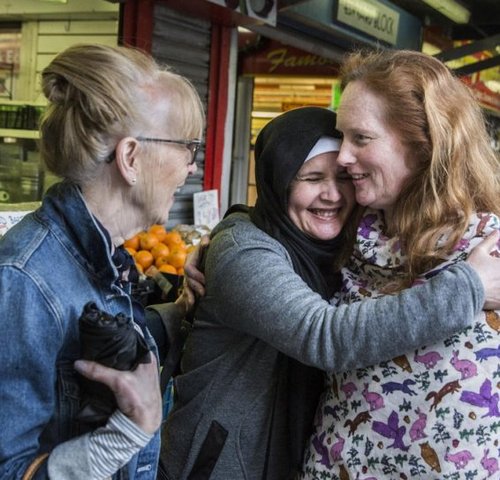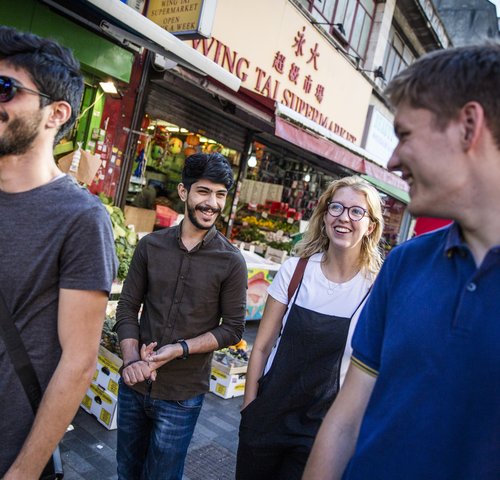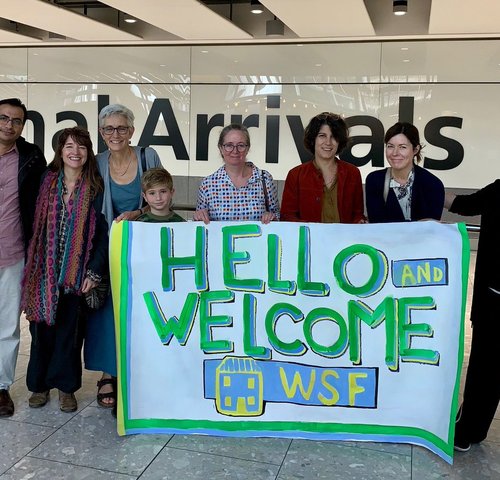A PATH through Covid - How Citizens UK Members can ‘Plan Alternative Tomorrows with Hope’
By Dr Tim Cox, who has received a doctorate in Applied Educational Psychology from Newcastle University. He has been working as part of the Tyne and Wear Citizens mental health action team.
Ever since I first became aware of Citizens UK in 2008 it has been abundantly clear that the organisation and its members are brought together in alliances around challenging social injustices and enabling communities to reorganise themselves in a fairer and more cohesive manner. When I think of the work of Citizens UK, Tony Benn’s conceptualisation of human progress relying on the flame of anger at injustice and the flame of hope, that things can be better, comes to mind. Citizens UK is in the business of fanning the flames of hope and anger at injustice and encouraging communities to take their place at the negotiation table. Over the last decade, community organising has proved a healthy antidote to the polarisation of British society and given me hope that there is a better future ahead.
Hope seems like a dangerous thing to be thinking about in 2020. Ever since Covid-19 entered our lives, took hold and turned what we knew about life upside down it has been almost impossible to plan anything beyond the next 24 hours. We now have to micro-plan leaving the house - phone, keys, wallet, mask, anti-bac, 2 metres distance, eat out, help out, stay alert at all times. Forecasts for the new normal have shifted as we know more about the virus and seem to understand less. As soon as it seems like we have a handle on what is happening in the World, it slips through our fingers. Frustrated, we are left wondering whether there will ever be a point again.
So what do we do with such uncertainty?
I think we should hope despite the uncertainty.
By no means do I want to come across as a sickly baseless cheerleading optimist. Throughout history, leaders have envisioned a more positive future despite adversity. Why is now any different? Do we have to wait until things are back to ‘normal’ to start thinking like that? Why not start now?
Over the past 2 years, I have committed myself to study hope as a psychological phenomenon. I have found being hopeful does not have to be just a whimsical notion that things could be better at some point. Hope is a quality that can be practised and over time can become a discipline if we frame it right. It means defining your dreams, setting accurate goals which make the everyday meaningful. It means grounding your understanding of hope in the reality that you exist within. Once you have established your vision of your dream for a good life, you can go about developing confidence in pursuing your goal and learning different ways to achieve them. Practising hope is a healthy habit with many benefits.
Over the past 3 months, myself and 2 other Educational Psychologists who trained at Newcastle University have been facilitating training about the use of a framework to help Citizens UK leaders to:
- Define their dreams and live their values
- Set incremental and meaningful goals
- Recruit allies
- Consider current challenges and how to stay strong in the face of them
The Framework is called Planning Alternative Tomorrows with Hope (PATH). It has been used in a wide range of settings for over 30 years and I have found it such a helpful tool on a personal and professional level. On a theoretical and practical level, it helps people to think, plan and act in a more hopeful, confident, and successful way.
My colleagues and I have been taken aback by the enthusiasm and openness of Citizens Leaders to engage in hopeful conversation, thinking and action using this framework. I’m hopeful that it can help our communities and institutions to be ready, confident, and cohesive forces for good and for hope throughout this pandemic and for whatever follows. The world needs hope. The UK needs effective community organisers with a plan. This framework can help you be ready for whatever the new normal brings.
You can find out more and sign up for the training here .


